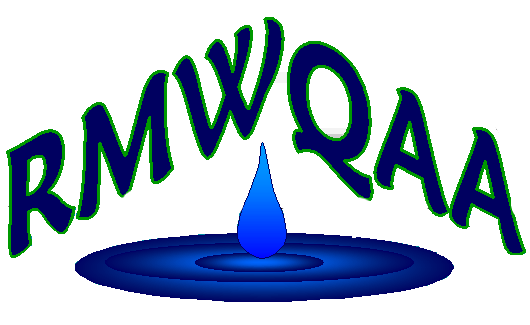Do you ever feel like you’re in a Parks and Rec episode when dealing with resident water quality complaints?
“There’s a sign in the park that says DO NOT DRINK the sprinkler water and I made some tea with it and now I have an infection” -Parks and Rec episode
I got the idea for this month’s blog recently when I was asked by a resident, “Why does my washing machine smell like doo-doo water”. Easy fix, bleach and sanitize your washing machine for mold and mildew.
It can always be tricky trying to diagnose water quality issues at a residence or business when there are multiple factors that can affect the taste and odor. As I am very confident in our water quality and take great pride in our water, I find it a fun challenge to be able to troubleshoot residents’ water quality issues and teach them about water quality and our treatment techniques. Many complaints start with water heater issues or old refrigerator filters. Yes, I’ve been asked multiple times to test resident’s ice cubes!
If we can’t resolve a problem over the phone, we offer to test the resident’s tap water to compare any differences to our distribution lab data. Here are some of the questions to ask and ways to troubleshoot possible water quality issues to help you determine whether the issue is related to taste/odor problems from the water itself or something within the residence.
- Make sure the water is always cold out of the kitchen tap when comparing water quality between sources; hot water chemistry can be completely different due to water heater conditions
- Suggest annual or bi-annual water heater preventative maintenance to the resident to mitigate issues by flushing out iron and manganese sediment and keep the unit running efficiently
- Recommend cleaning out tap diffusers, especially if new galvanized plumbing has been installed
- Water softeners or any other separate treatment systems like reverse osmosis can cause issues if not properly maintained or cleaned regularly
- New filters and water softener media should be flushed or seasoned when installed
- Old refrigerator filters/water lines and scale build up on fridge water lines can cause taste and cloudiness issues
- Clean scaling in small water lines with vinegar solution for different appliances; check out Youtube for instructions on specific brands
- New residents to the area often have a different taste for the water and it takes time to acclimate to the taste
- Taking new medications can alter you taste of drinking water and COVD symptoms has raised new issues with loss of taste
- Is the glassware actually clean? Dishwasher performance or residual detergent left on glassware can create taste problems
- Solar Water heaters on the top of the roof can also cause issues (yes, I’ve actually run across this issue)
- If there is an odor coming from the sink, it is most likely coming from the drain and can be improved by cleaning with baking soda, vinegar, hot water, and even orange peels ground up with a garbage disposal
- Chlorine taste/odor can be mitigated by filling a pitcher of water and storing it in the fridge overnight to allow the chlorine to dissipate out
- Cloudiness in the water often happens with temperature fluctuation and will also dissipate within 5 minutes
- Color issues, often an orange or black tint, are most likely iron or manganese, potentially from hot water heaters
- Compare the outside tap water quality with the kitchen tap water quality or nearby distribution sampling site to assess the location of the problem
- There could also potentially be a change in water quality from the change in seasons that is messing with the chemistry in the water which should pass soon
- Lastly, are staff flushing hydrants in the area or was there a watermain break that disrupted services?
If all else fails, have the Distribution Department flush the area to bring in fresh water and hopefully resolve the issue. There are multiple issues than can occur that could potentially cause taste and odor issues so having a few questions in your pocket to help diagnose the problem can make the resident feel at-ease and be more willing to help and hopefully figure out the issue faster. It also helps to keep an ongoing list of water complaints to help with future issues and diagnosis if certain locations or neighborhoods experience similar problems.
I figured this blog could help staff that deal with water complaints as well as distribution samplers that are asked questions by residents while sampling throughout the community. It is always fun working and troubleshooting with the public! Keep calm and Enjoy!
John Winterton is the Laboratory Supervisor at the City of Northglenn. He’s been working with Northglenn for over 5 years in water treatment and water quality.
 Welcome to the
RMWQAA Website!
Welcome to the
RMWQAA Website!  Welcome to the
RMWQAA Website!
Welcome to the
RMWQAA Website!